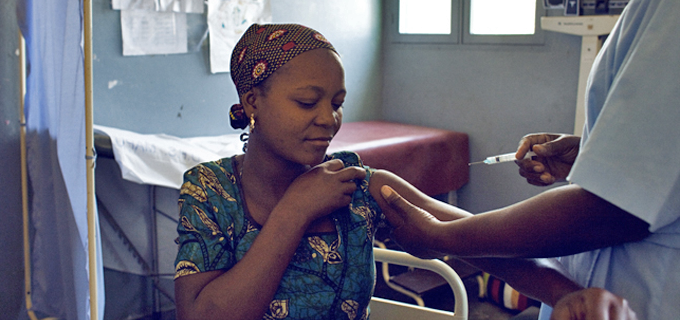All of us have heard about Cancer and atl
east have a idea about it right! Now why is it still ranking as the second leading cause of death globally, accounting for nearly 10 million deaths in 2020, which is roughly one in six deaths? Its complicated right!
In fact;
- The overall age-standardized incidence rate (ASR) for all cancers combined is 109.9 per 100,000 in males and 91.9 per 100,000 in females.
- This means approximately 1 in 8 males and 1 in 10 females in Uganda will develop cancer before the age of 75.
- The incidence of cancer is gradually increasing in both sexes, with a 25% increase observed between 2011-2015 compared to 1991-1995.
The top three cancers in women – breast, colorectal and lung cancers – contributed 44.5% of all cancers (excluding non-melanoma skin cancer).

So what are the Most common cancers?
- In men
Prostate cancer, esophageal cancer, stomach cancer, Kaposi’s sarcoma, and liver cancer.
Let’s look closely at each of these,
Prostate cancer,
Prostate cancer is one of the most common types of cancer in men. It occurs in the prostate, a small walnut-shaped gland that produces seminal fluid in men. The exact cause of prostate cancer is unclear, but certain risk factors have been identified.
These include older age, family history of prostate cancer, and race (it is more common in people of African descent).
Signs and Symptoms of Prostate Cancer
While early prostate cancer may not cause any symptoms, as the cancer grows, you may experience several signs. These include:
- Trouble urinating, including a slow or weak urinary stream or the need to urinate more often, especially at night
- Blood in semen
- Discomfort in the pelvic area
- Bone pain
- Erectile dysfunction
Prevention
While it’s not possible to prevent prostate cancer entirely due to factors like age and genetics, certain lifestyle changes can help reduce the risk:
- Dietary changes: Eating a diet rich in fruits, vegetables, and whole grains can help lower the risk of prostate cancer. Limiting the intake of high-fat foods, especially from animal sources, is also advised.
- Physical activity: Regular physical activity can help maintain a healthy weight, which reduces the risk of prostate cancer.
- Regular screenings: Regular prostate cancer screenings, which may include a prostate-specific antigen (PSA) blood test and digital rectal exam, can help detect the disease early when it’s most treatable. It’s important to discuss with a healthcare provider about when to start screenings.
Esophageal cancer

Esophageal cancer is a disease that occurs in the esophagus – the long, hollow tube that runs from the throat to the stomach. It is one of the leading causes of cancer deaths among men in Africa. Several factors contribute to the high incidence of esophageal cancer in this population.
Signs and Symptoms of Esophageal Cancer
Esophageal cancer often does not cause symptoms until it has reached an advanced stage. However, when symptoms do occur, they can include:
- Difficulty swallowing, known as dysphagia. This is one of the most common symptoms of esophageal cancer. It may feel as though food is stuck in the throat or chest.
- Chest pain, pressure or burning
- Worsening indigestion or heartburn
- Coughing or hoarseness
- Unexplained weight loss
- Anemia or fatigue due to blood loss
- Vomiting or coughing up blood
If you experience any of these symptoms, contact Teamwork Homecare, we are dedicatd to helping people with Cancer even at their home.
Prevention
While it may not be possible to prevent all cases of esophageal cancer, the following strategies can significantly reduce the risk:
- Tobacco and alcohol cessation: Avoiding or quitting tobacco and alcohol can significantly reduce the risk of esophageal cancer.
- Healthy diet: Consuming a diet rich in fruits and vegetables can lower the risk of esophageal cancer.
- Avoiding hot beverages: Avoiding the consumption of scalding hot beverages may reduce the risk of esophageal cancer.
- Regular screenings: For people at a high risk of esophageal cancer, such as those with Barrett’s esophagus or a history of heavy smoking or drinking, regular screenings can help detect the disease at an early stage when treatment is more likely to be effective.
Esophageal cancer

Esophageal cancer is a disease that occurs in the esophagus – the long, hollow tube that runs from the throat to the stomach. It is one of the leading causes of cancer deaths among men in Africa. Several factors contribute to the high incidence of esophageal cancer in this population.
Signs and Symptoms of Esophageal Cancer
Esophageal cancer often does not cause symptoms until it has reached an advanced stage. However, when symptoms do occur, they can include:
- Difficulty swallowing, known as dysphagia. This is one of the most common symptoms of esophageal cancer. It may feel as though food is stuck in the throat or chest.
- Chest pain, pressure or burning
- Worsening indigestion or heartburn
- Coughing or hoarseness
- Unexplained weight loss
- Anemia or fatigue due to blood loss
- Vomiting or coughing up blood
If you experience any of these symptoms, contact Teamwork Homecare, we are dedicatd to helping people with Cancer even at their home.
Prevention
While it may not be possible to prevent all cases of esophageal cancer, the following strategies can significantly reduce the risk:
- Tobacco and alcohol cessation: Avoiding or quitting tobacco and alcohol can significantly reduce the risk of esophageal cancer.
- Healthy diet: Consuming a diet rich in fruits and vegetables can lower the risk of esophageal cancer.
- Avoiding hot beverages: Avoiding the consumption of scalding hot beverages may reduce the risk of esophageal cancer.
- Regular screenings: For people at a high risk of esophageal cancer, such as those with Barrett’s esophagus or a history of heavy smoking or drinking, regular screenings can help detect the disease at an early stage when treatment is more likely to be effective.
Most Common in Both Male and Female
Stomach cancer
Stomach cancer is also known as gastric cancer, affects the stomach lining and is among the most common cancers in men in Uganda.

How can You Prevent it?
Preventive measures can significantly reduce the risk of stomach cancer:
- Helicobacter pylori screening and treatment: It’s important to detect and treat this infection early to prevent the development of stomach cancer.
- Healthy diet: Consuming a diet rich in fruits and vegetables and low in salted and smoked foods can lower the risk of stomach cancer.
- Tobacco and alcohol cessation: Avoiding or quitting tobacco and alcohol can significantly reduce the risk of stomach cancer.
- Regular screenings: For individuals at high risk of stomach cancer, regular screenings can help detect the disease at an early stage when treatment is more likely to be effective.
Kaposi’s sarcoma
Kaposi’s Sarcoma is a type of cancer that develops from the cells that line lymph or blood vessels. It usually appears as tumors on the skin or mucosal surfaces such as the mouth, but it can also develop in other parts of the body, such as in the lymph nodes, lungs, and digestive tract.

Signs and Symptoms of Kaposi’s Sarcoma
Signs and symptoms of Kaposi’s Sarcoma can vary depending on the areas of the body affected. Theymight include:
- Skin lesions: These are usually the first sign of Kaposi’s Sarcoma. They might appea
- r as red, purple, or brown spots or bumps on the skin, and can occur anywhere on the body. They can be flat or raised and may form in patches.
- Swelling: This can occur if the disease affects the lymph nodes or causes lymphedema, a condition of localized fluid retention and tissue swelling caused by a compromised lymphatic system.
- Respiratory symptoms: If the disease affects the lungs, it can lead to symptoms such as coughing, shortness of breath, or chest pain.
- Digestive symptoms: If the disease affects the digestive tract, it can cause symptoms such as nausea, vomiting, abdominal pain, or diarrhea.
- General symptoms: Some people with Kaposi’s Sarcoma might also experience general symptoms of illness, such as fever, excessive sweating, unintentional weight loss, or fatigue.
Causes
The exact cause of [Kaposi’s Sarcoma] is not known, but it’s strongly associated with infection with the human herpesvirus 8 (HHV8). Not everyone infected with HHV8 will develop Kaposi’s Sarcoma, but the risk is much higher in people with weakened immune systems, such as those with HIV/AIDS. In fact, Kaposi’s Sarcoma is an AIDS-defining condition in people living with HIV.
Prevention
While it may not be possible to prevent all cases of Kaposi’s Sarcoma, the following strategies can significantly reduce the risk:
Avoid known risk factors: Certain factors can increase the risk of HHV8 infection, such as sharing needles and having unprotected sex. Avoiding these risk factors can help prevent Kaposi’s Sarcoma.
Prevent HIV infection: Since Kaposi’s Sarcoma is more common in people with HIV, preventing HIV infection can also reduce the risk of Kaposi’s Sarcoma. This can be achieved through safe sex practices, regular HIV testing, and the use of pre-exposure prophylaxis (PrEP) for people at high risk of HIV infection.
HIV Control: For people living with HIV, taking antiretroviral therapy (ART) to keep the virus under control can significantly reduce the risk of Kaposi’s Sarcoma.
Liver Cancer
Liver cancer, particularly hepatocellular carcinoma, is one of the leading causes of cancer deaths in men in Africa.

Signs and Symptoms
Liver Cancer symptoms can vary widely depending on the type, stage, and person’s overall health. However, some common signs of cancer include:
- Unexplained weight loss
- Fatigue
- Pain that doesn’t go away
- Skin changes (yellowing, darkening, or redness of the skin, sores that won’t heal, or changes to existing moles)
- Changes in bowel or bladder habits
- Persistent cough or trouble breathing
- Difficulty swallowing
- [Unusual bleeding or discharge]Unusual vaginal bleeding could be,or other health care professional.)
- New lumps or growths
- Indigestion or discomfort after eating
- Unexplained night sweats
If you experience any of these symptoms, it’s crucial to see a healthcare provider for evaluation. Early
Most Common in Women
These include;
Breast Cancer , Cervical Cancer, colorectal cancer, lung cancers
for now we shall focus on, breast cancer.
Breast Cancer
Breast cancer is one of the most common types of [cancer diagnosed in women in Uganda]It occurs when cells in the breast begin to grow out of control and can often be seen on an x-ray or felt as a lump.
Signs and Symptoms of Breast Cancer
Breast cancer symptoms vary widely – from lumps to swelling to skin changes – and many breast cancers have no obvious symptoms at all. Symptoms that are similar to those of breast cancer may be the result of non-cancerous conditions like an infection or a cyst. Here are potential breast cancer symptoms:
- A breast lump or thickening that feels different from the surrounding tissue
- Change in the size, shape or appearance of a breast
- Changes to the skin over the breast, such as dimpling
- A newly inverted nipple
- Peeling, scaling, crusting or flaking of the pigmented area of skin surrounding the nipple (areola) or breast skin
- Redness or pitting of the skin over your breast, like the skin of an orange
Prevention of Breast Cancer
- Limit alcohol: The more alcohol you drink, the greater your risk of developing breast cancer. If you choose to drink alcohol — including beer, wine or liquor — limit yourself to no more than one drink a day.
- Don’t smoke: Evidence suggests a link between smoking and breast cancer risk, particularly in premenopausal women.
- Control your weight: Being overweight or obese increases the risk of breast cancer.
- Be physically active: Physical activity can help you maintain a healthy weight, which helps prevent breast cancer.
- Breast-feed: Breast-feeding might play a role in breast cancer prevention. Actually Doctors advise married women to engage their husbands to suck them as much as they can.
Do you know Someone or Its You?
If you know of someone battling with Breast cancer, Teamwork Homecare has Cancer Specialists that can help you with Cancer Treatment with professionalism and at your comfort. Contact us today
Airtel: 0200-909453
MTN: 039-256331
That’s been a Wrap, I hope you enjoyed this, if you did kindly give it a like 👍 and share with all those that may need it. 🙏
Lets catch up in the next one✌
Teamwork Homecare Team.



